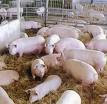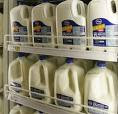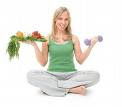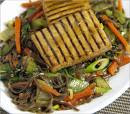 Many of the health benefits derived from a vegetarian diet have to do with creating a healthy environment in the bowels and stomach. Our digestive systems, from prehistory on, were designed to metabolize vegetable matter, more than animal products.
Many of the health benefits derived from a vegetarian diet have to do with creating a healthy environment in the bowels and stomach. Our digestive systems, from prehistory on, were designed to metabolize vegetable matter, more than animal products.Fruits, vegetables, legumes and nuts provide the kind of dietary fiber our digestive systems need to function properly. The Western diet that’s high in processed and refined flour and sugar, and in animal products that are laden with hormones and antibiotics, are actually anathema to our insides.
When the digestive system doesn’t function and work as it’s intended to, that leads to opportunistic diseases or changes in the DNA of cells in the stomach and colon. And there are more practical considerations as well.
When we don’t get enough of the fiber we need, we incur a host of digestion and elimination problems, such as constipation and hemorrhoids that are a result of straining. These diseases and syndromes are much less evident in a vegetarian population than in a meat-eating population.
Other diseases of the bowel that occur less frequently in a vegetarian population include irritable bowel syndrome, and chronic ulcerative colitis, mostly likely due to the increased fiber content in a vegetarian diet. And of course a diet that’s higher in dietary fiber that comes from a vegetarian diet will decrease the likelihood or risk of colon cancer.
When you consider the risks that come with a diet that includes meat and animal products, and the benefits that come from a vegetarian diet, does the prospect of a steak or burger or bacon really sound that good to you?
Doesn’t it at least make sense to reverse the portion sizes and proportions of meats to vegetables and side dishes? In other words, if you must continue to eat meat, then make meat your side dish, or just incidental to your meal, such as in a stir fry. Increasing the proportion of fruits and vegetables in your diet can only be good for you.

























